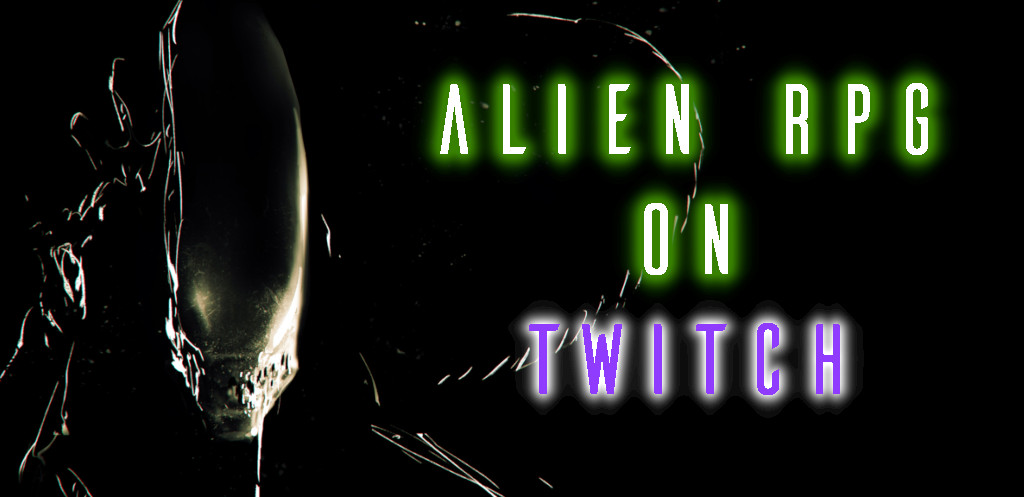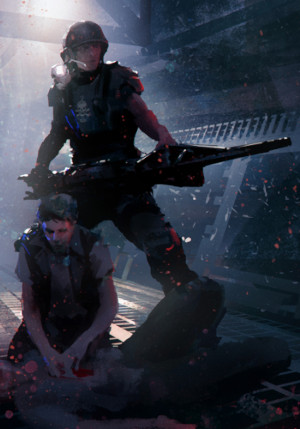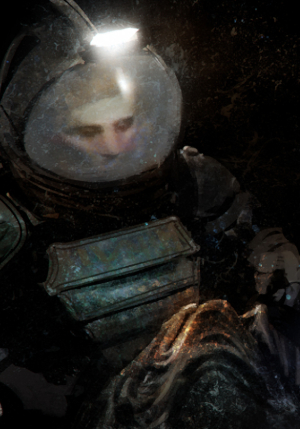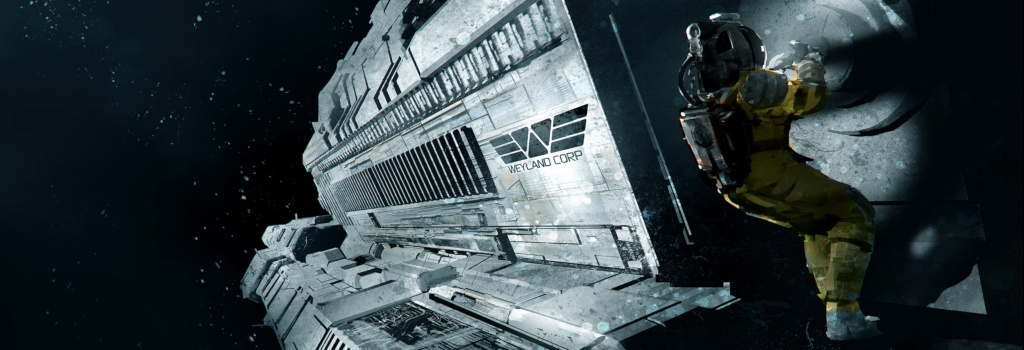
Free League Publishing’s Tabletop Sci Fi Horror Masterpiece
Summers in the southern US mean hurricanes. Hurricanes mean power outages. Two back to back hurricanes one summer meant that the neighborhood kids; Jason, Jonathan, Richard, Leron, and Joseph had nothing better to do than sit in the front yard playing roleplaying games. I’ve recently started playing tabletop RPGs again, and this time I wanted to bring my digital Twitch neighborhood together. As a big Sci-Fi fan, I saw Free League Publishing’s Alien RPG as an opportunity that me and my audience could sink our teeth into. I contacted Free League Publishing, and they sent over digital copies of the Alien RPG Core Rulebook, the Maps and Markers pack, and the Chariot of the Gods scenario book. I will be strictly covering the core rulebook in this piece. I’ve finished reading it, and run my first cinematic (one-shot mission) with it. This is a fantastic system for new and veteran players alike, and I think it fits a streaming format particularly well.
The Alien RPG Rule System
The core rulebook is all you need to run Alien RPG adventures on your stream, and it even includes ‘Hope’s Last Day’, a scenario that directly ties into the movies. It’s the perfect template to model your future cinematics after. The rulebook may look a bit daunting initially at nearly 400 pages, but looks can be deceiving. There’s a lot of great artwork in there, and a running story told alongside the rules that keeps you entertained. Everything is laid out in a thoughtful order, and I appreciated not having to flip around too much trying to reference something that hadn’t been covered yet. As a Game Mother (GM), I could explain everything to new players and answer all questions in about 10 minutes. This is exceptionally helpful when you have an audience on Twitch, and you don’t want to keep them waiting.

A big advantage to Alien RPG is that it’s a very new player-friendly system, and that’s great for streamers with diverse and international audiences. Veteran players can be used to particular effect with this system to make new players feel a part of things. Two simple mechanics build on each other allowing lively play among any mix of player experience. These are the Buddy/Rival and Agenda mechanics, and they work together to foment some of that drama between characters you see throughout the Alien franchise. For new players, the Buddy/Rival system instantly gives them a “grip” on the Alien universe. Someone to cling to, for better or worse, and give them a lifeline to tug on if they start to feel a little lost. Veteran players can use this mechanic to give new players something to springboard off of, or stir up levels of drama you can only get from reality TV. Agendas work to further cement a player’s identity, giving them a reason to be there in the first place, and an end goal. For new players, an Agenda gives motivation for their character, a reason to choose the right hallway over the left. This is something I’ve found to be the hardest part of tabletop games to explain to new players. Veteran players can really take advantage of their Agenda to take a more adversarial approach with other players, or otherwise enrich the story in ways only limited by their imagination.
You can’t talk about Alien RPG and not address the xenomorph in the room (assuming you you got an Observation success). Encounters with these horrific creatures were overwhelmingly fatal in the movies, so working them into a tabletop game where you are trying to encourage people to invest in their characters would seem counterproductive. I think Free League has hit the right note though, balancing ‘realism’ with player enjoyment via a table of randomized actions. Each action has a unique and interesting consequence, not just death. While some of the xenomorph abilities are incredibly lethal, this particular system does give players a tiny bit of breathing space. In fact, I think it actually gives xenomorphs a bit more authenticity, balancing brutal attacks with responses that seem natural to the creatures, but that humans simply cannot understand. Similar to AI or animal thinking.
Running Hope’s Last Day
I used YAG to run my Alien RPG scenario on Twitch, provided to me by it’s developer as well. YAG (Yet Another Gameboard) is a 3D tabletop program you can find on Steam. YAG provides something different than the predominant 2D presentations you see on Twitch, and has the perfect models to represent the Alien xenomorphs. It is purpose built for running tabletop RPGs virtually, and has an incredible amount of features. YAG helps eliminate the need for sharing live cams, which broadens your playerbase to include those that aren’t comfortable sharing center stage.

I recommend playing some music in the background. I had purchased some royalty free & commercial rights to music previously on Humble Bundle and other sites. Make sure you have rights to any music you play! The Tabletopaudio website may work for you as a free option, just make sure you read it carefully and understand what’s expected when you use it.
I’ve outlined some tips from my own first experience running Hope’s Last Day on stream. We had a lot of fun, but following these suggestions can help things run more smoothly.
- Read the whole rulebook, then go over the core systems (combat, healing, xenomorphs, etc) a second time. You don’t have to memorize everything, just undertand how it all works.
- Make yourself a cheat sheet of the various tables (Panic, injuries, etc). This will save you SO much time during your game.
- Link your players to Free League Publishing’s Alien RPG download page. This will give them access to a map of Hadley’s Hope and character sheets if they want them. It’ll also give players a chance to check out everything Free League Publishing has to offer.
- Play with 3-4 players. Death is no stranger to Alien RPG, so you’ll have a few extra ‘viable’ NPCs for your players to get a second chance at life.
- Refer to your players as their character’s names. Things can get confusing and redundant. The audience will probably appreciate the consistency and immersion too.
- Go over the Agendas with each new player privately. This also gives them a chance to ask any questions about anything that might be on their mind.
- You just need to cover the rule basics at first, you don’t need to recite the entire rulebook. I’d suggest going over the following things, and then playing the game letting the rest unfold naturally so you don’t overwhelm people.
- Explain how to read success on the dice (6s).
- Explain Stress and Pushing rolls.
- Explain Fast Actions, Slow Actions, and Blocking.
- Explain Agendas, Buddys & Rivals, and Opposed Rolls.

Wrapping It All Up
Alien RPG was a total blast for me, and for the players too. I used strawpoll to get feedback from my players, because I wanted them to be honest with their experience. They all gave it top marks and were excited to play again. One of them hadn’t even seen the Alien movies, and still enjoyed the game. My next step is creating my own cinematic, but my long term goal is to run a campaign based on the Colonial Marines. Integrating channel points to let my audience interact with the story is a priority as well, once I have a more veteran group playing. In the meantime, Alien RPG is engrossing to play, and it’s iconic setting will let your players, and stream audiences, experience nightmares they will never forget.
On Twitch, everyone can hear you scream.